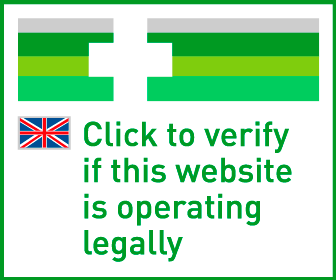
| Conditions | ||
| Acne | ||
| Asthma | ||
| Allergy | ||
| Weight Loss | ||
| Cholesterol | ||
| Libido Loss | ||
| Stop Smoking | ||
| Influenza | ||
| STI Tests | ||
| STI Treatments | ||
Reasons to use Firstmed
- FREE Consultation
- GMC Registered Doctor
- CQC Registered Service
- Discreet, & Confidential
- Royal Mail Special Next Day Delivery
Branded Treatments Only

Secure Online Payment
Acne vulgaris in Adults
Acne is one of the most common skin conditions. Typically associated with spotty teenagers, it is now experienced by an increasing number of adult men and women who may battle acne until well into their 30s or 40s. Acne is usually diagnosed visually i.e. by looking at the symptoms and depending on the predominant kind of breakout, one distinguishes between comedogenic or cystic acne to name but the two main types.
Obtain an online prescription for acne treatments online with FirstMed.
- UK’s No. 1 source for sexual health treatments, over 70,000 registered users
- Free consultation with GMC or EU-registered doctors
- Genuine branded medications
- Discreet, confidential service & Royal Mail Special Next Day Delivery
- Registered with the Care Quality Commission
For Acne Treatments & Prices

Acne Symptoms
Acne primarily affects the face as well as the chest, back and sometimes shoulders or buttocks. Due to the affected body parts being exposed, severe acne can cause considerable distress to the sufferer. Deep cysts, nodules and blackheads as well as improper care can leave permanent scarring which is why it is essential to find the right treatment. Typical acne symptoms include whiteheads (closed inflamed spots containing pus and lymph) and blackheads (closed comedones filled with dead skin cells) as well as generally oily skin and a greasy complexion.
Acne Causes
Acne is brought on by inflammation as well as bacterial overgrowth of Propionibacterium acnes. This microorganism feeds off dermal sebum (oil on the skin, secreted by the oil glands and necessary to lubricate the skin) and can therefore flourish on an oily face. A hormonal imbalance can stimulate dermal sebum secretion which favours acne. Male sex hormones (androgens) play an important part in this process. Many people wrongly believe that acne is caused by poor personal hygiene or diet. To date, neither has been proven scientifically. It should however be noted that a healthy, balanced diet is important for your general health and can thus greatly contribute to your allover wellbeing. Too much or too harsh cleansing of the skin can further weaken the natural barriers thus aggravate acne, so only use gentle products on your skin. This is particularly important if your acne is treated using prescription medicines as some of them can thin the skin thus making it more vulnerable.
Acne Treatment
The way your conditon is treated will depend on the type and severity of the acne. There are plenty of OTC products available at pharmacies and drugstores which are usually effective to treat mild acne. In more severe cases, prescription-only topical or oral medicines may be indicated. Your doctor will decide the best course of action. Common treatments include topical and oral antibiotics such as Duac or Minocin MR, keratolytic agents such as Skinoren or Differin and retinoids like Roaccutane or Retin-A. Women may benefit from certain oral contraceptives, most notably Dianette. To obtain best treatment results, it is important that you adhere to the regime your doctor recommended. You will also need to be patient � the skin takes around 4 weeks to renew itself and sometimes it may seem that the acne initially gets worse and that the skin starts flaking and peeling. Be persistent and you should be able to see visible results within about 4-6 weeks. If you have any concerns about your acne treatment, please consult with your prescribing healthcare practitioner.



